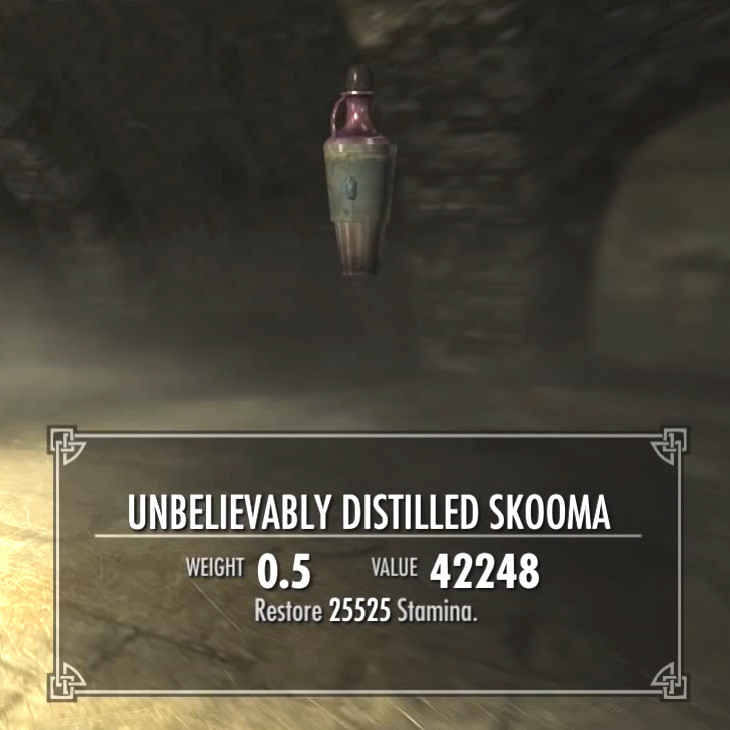

This is partially explained by other characters' complaints that Skooma is watered down in the Skyrim region, but to me it just smacks of avoiding controversy. In the latest iteration, Skyrim, the developers kind of pussied out on Skooma, turning it into a bland substance with no real positive or negative effects and reducing its value to next to nothing. In the previous Elder Scrolls game, nobody would trade with you if you had Skooma on you, hinting at extreme societal prejudice against its users. He spent several days walking across the country to another town, where he bought up a massive stash before taking it back to Bravil. Characters live their own lives in Oblivion, and once I decided to follow one of them when he left town. There's one spot in The Elder Scrolls IV: Oblivion called Bravil that's full of them, all living in a den. However, that's not as interesting as the Skooma addicts you find around the place. If you use it, it'll boost your strength and speed, but totally devastate your intelligence and agility. The local poison in Tamriel, Skooma, is essentially heroin, sold as crystals and smoked once heated.

Narc, in 2005: Take a hit, and you'll still feel like you're playing the wrong gameĭrugs are considerably more interesting in the Elder Scrolls series. Pretty much every single other open-world crime game out there does exactly the same thing. The DS version, Chinatown Wars, caused predictable moral outrage with a drug-dealing mini-game, but usually drugs are the things that you're supposed to pick up somewhere after murdering some people and then deliver to somewhere else. The Grand Theft Auto series has often used drugs as a shortcut to edginess. They are also a very handy narrative device: make the bad guys drug dealers, and it's totally fine to mass-murder them all. Throughout video game history, drugs and sex have essentially been used by developers to say "LOOK HOW GRITTY AND GROWN UP WE ARE!!"-imbuing games with the kind of maturity that only 13-year-olds actually believe is mature. You don't need any chemical assistance to feel somewhat changed after a playthrough of Rez, or a three-hour Titanfall session that leaves you suffused with adrenaline and sweating profusely. I believe there's a natural affinity between video games and drugs, in that they can both do weird and interesting things to our brains and bodies. A screen shot from 'Rez,' a 2001 rail shooter music game that looks a bit like your brain firing synapses


 0 kommentar(er)
0 kommentar(er)
